Scout Motors Announces Direct-To-Consumer Sales, Setting off Fierce Opposition
Scout Motors set off a firestorm of controversy this week, as it announced that the company would use a direct to consumer sales model, without a third-party automotive dealership.
Volkswagen’s revival of the Scout name and its direct-to-consumer sales approach are stirring up considerable blowback in the automotive world. With production set to begin in 2027, the newly revealed Scout Traveler SUV and Terra pickup are more than just modern EVs; they’re positioned to disrupt the traditional dealer-sales model. By cutting out third-party dealerships, Scout aims to streamline the buying experience for consumers, offering a more direct, personalized, and likely digital-focused approach. This direct sales model, however, is raising significant opposition among dealers who stand to lose out on sales and service revenue they would typically capture.
VW’s strategy could enable Scout to provide more consistent pricing, an increasingly attractive feature for EV buyers accustomed to tech-driven brands like Rivian and Lucid, using the direct-to-consumer model. Scout’s decision aligns with the trend in the EV sector toward direct sales, but for legacy automakers, it’s a bold move that comes with its own risks, especially as they navigate dealer franchise laws in various U.S. states. Still, Scout is banking on the appeal of these well-equipped, rugged electric vehicles and the value of a simplified purchasing experience. Whether this gamble pays off will indeed be something to watch as we approach Scout’s launch in 2027.
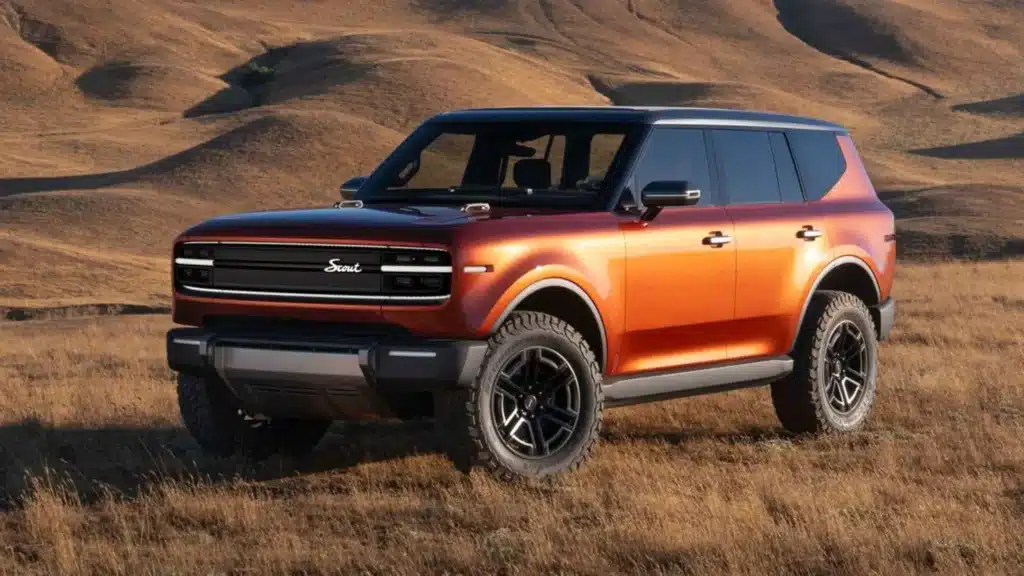
Automotive News reported that Mike Stanton, CEO of the National Automobile Dealers Association, is convinced Scout’s decision to cut the dealers out of the sales process is a huge mistake that “will be challenged.” Volkswagen National Dealer Advisory Council chairman Charlie Hall told AutoNews that Volkswagen didn’t notify them before the Scout announcement.
“Assuming they take this other path, let’s face it, there’s going to be challenges and problems for them virtually everywhere across the country,” Automotive Trade Association Executives’ 2024 chairman John Devlin told Auto News. “My counterparts around the country are not just going to roll over.”
Scout’s setup as an independent brand within the Volkswagen Group has allowed the company to maneuver around the typical dealer agreements that would automatically grant franchisees rights to sell its vehicles. This structure, along with Volkswagen’s clear stance as early as mid-2022, gave dealers advance notice that Scout vehicles wouldn’t automatically be allocated to them.
Even so, dealer associations are not pleased. Many dealers have long anticipated a rugged pickup from VW, and they see this move as potentially undermining their longstanding investments in VW franchises. With Scout’s direct sales model now solidified, some dealer groups are reportedly gearing up for legal challenges, aiming to challenge VW on both the federal and state levels. The outcome of these challenges could have significant implications for how automakers navigate franchise laws and dealership requirements in the future—especially as more brands eye similar direct-to-consumer pathways.
“Why would the best, most effective value proposition to distribute vehicles to customers not be your first choice?” Devlin asked Auto News. “And why would you reject an existing distribution and sales system that already exists?”
Direct-to-Consumer Car Sales
Direct-to-consumer (DTC) car sales represent a fundamental shift in the automotive industry, aimed at streamlining the car-buying process and enhancing the customer experience. By bypassing traditional dealerships, manufacturers can control nearly every aspect of the sale, from pricing and financing to trade-ins and delivery, allowing them to create a consistent brand experience for buyers. This approach can reduce overhead costs associated with franchised dealers and potentially pass those savings along to consumers through more competitive pricing or value-added services. EasyAutoShip posted a list of states allowing direct sales.
For automakers, direct sales also mean they have direct access to consumer data, allowing for a more personalized approach to marketing, customer service, and post-sale engagement. However, DTC models come with challenges, especially in the U.S., where dealer franchise laws protect dealerships in many states and restrict manufacturers from selling directly. Legal disputes have arisen in the past, and will no doubt continue, as they will likely shape how this model evolves in the coming years.
Rivian, Polestar and Lucid, all highly recommended by EVinfo.net, are purely electric car companies which have adopted the direct-to-consumer model. Rivian offers guidance on how to buy its vehicles in the United States. The guidance is comprehensive, including title registration and DMV paperwork, trading in a vehicle, insurance, payments, and more. Financing is offered through third parties, as well as Rivian’s own financing.
Rivian currently offers the R1T pickup truck, R1S sport utility vehicle, Electric Delivery Van (EDV), and the R2, a smaller, less-expensive SUV. It’s R3 is an upcoming electric compact SUV, anticipated with great excitement. All of these high-quality EVs are highly recommended by EVinfo.net.
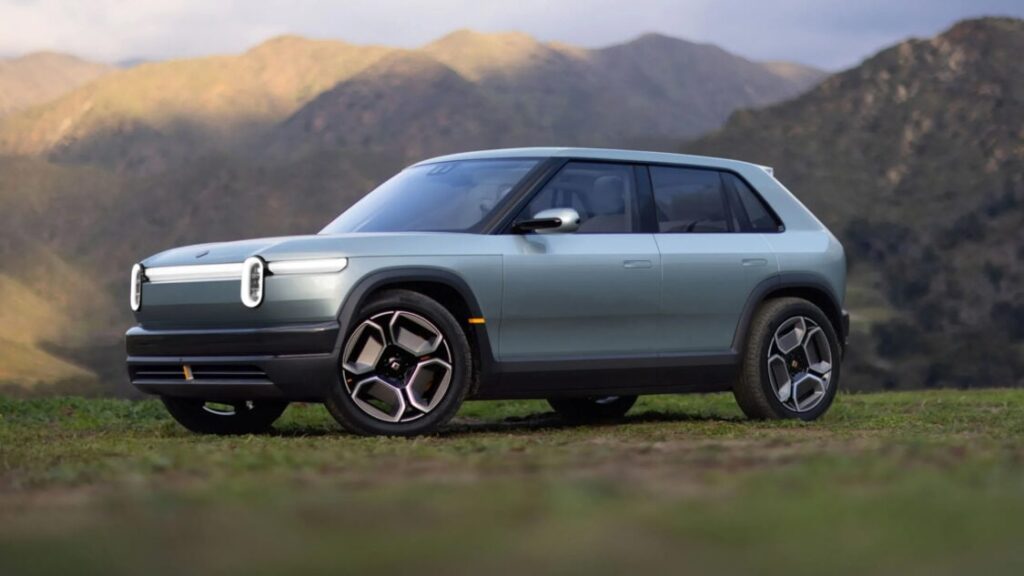
Blended Online Sales Models
Blended online sales models are becoming more popular, as more of the sales process moves to online. In blended online sales models, the dealerships still exist, as being ready to wrap up the final transaction, after the consumer makes choices online.
These examples show how major automakers are blending online shopping features with traditional dealership involvement to meet growing consumer expectations for convenience and flexibility. Here’s how some brands tailor the digital sales experience:
BMW’s platform allows customers to complete nearly the entire buying process online—from browsing and building to financing and delivery scheduling—while still providing online support through local dealerships. This hybrid approach gives customers the autonomy of online shopping, complemented by dealership support when needed.
Chrysler’s online shopping enables consumers to handle key aspects of the purchase, like selecting options, arranging financing, and even signing contracts electronically, with some dealership interaction to round out the process. This allows customers to start the process remotely, with a more traditional in-person component for final steps.
Jaguar Land Rover takes a similar approach by offering online customization, deposit payments, part-exchange valuations, and flexible financing options. However, finalizing the purchase still requires a showroom visit, where customers can take solo test drives and collect their vehicle, balancing online convenience with a more traditional dealership experience.
Ford’s online process supports customization, pricing transparency, trade-in offers, and financing exploration, while wrapping up transactions at a local dealership. This keeps dealerships central to the final sale, ensuring a connection between the customer and a nearby support hub.
These blended online approaches offer flexibility for customers who want a digital experience but appreciate the reassurance of dealership involvement for in-person support, particularly in the final purchase and delivery stages.
Hyundai’s Amazon Store Opening Soon
Amazon’s entry into vehicle sales in partnership with Hyundai is a significant move toward bringing the car-buying experience fully online within a platform many consumers are already comfortable with. By integrating with Amazon’s e-commerce infrastructure, customers will be able to browse Hyundai’s inventory, customize based on personal preferences (such as model, color, trim, and features), and even complete their purchase with selected financing options—all through Amazon’s site. This seamless experience allows buyers to stay within the Amazon ecosystem from start to finish, simplifying what has traditionally been a multi-step process involving dealerships.
After the online purchase, customers can either pick up their new car from a local Hyundai dealer or arrange for delivery, maintaining the connection with local dealerships for support, service, and after-sales assistance. This collaboration leverages Amazon’s reach to potentially make car buying quicker and more convenient, while still incorporating dealerships in a supportive, fulfillment role. For Hyundai and other manufacturers that may follow, this partnership with Amazon could mark a major shift in how cars are sold, further blurring the lines between traditional and digital retail in the automotive space.
Hyundai Group is one of the contenders to lead EV sales in America, gaining significantly more market share every quarter. EVinfo.net highly recommends all of Hyundai’s top-quality electric models.
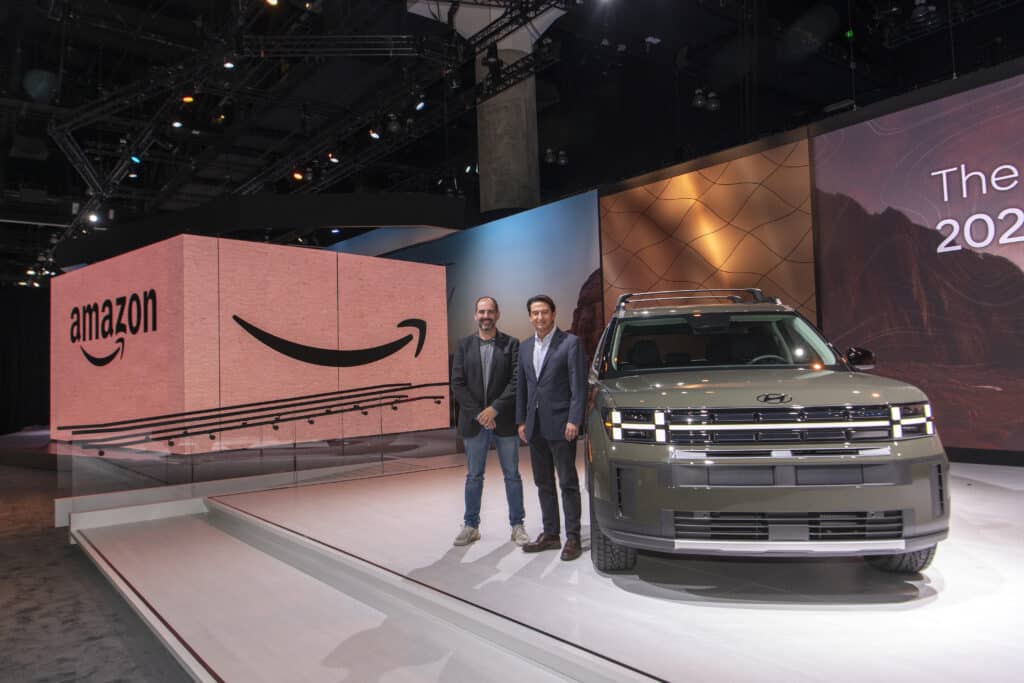
Less Maintenance Needed by EVs is a Problem for Auto Dealerships
The rise of electric vehicles (EVs) presents a unique challenge for car dealerships, particularly in the areas of maintenance and parts services. EVs require significantly less upkeep than gasoline-powered vehicles due to their simpler design and fewer moving parts, which means they lack complex components like transmissions and exhaust systems. This simplicity results in maintenance costs that are roughly 40% lower than those for gasoline vehicles, impacting a critical revenue stream for dealerships that traditionally rely on service and parts sales to support their bottom line.
As EVs become more prevalent, dealerships are rethinking their service operations to adapt. Fixed operations, the area responsible for maintenance, repairs, and parts, may face the greatest disruption. Unlike gasoline vehicles, EVs don’t require repairs as frequently, which means fewer service appointments and lower overall revenue from routine maintenance. However, EVs still require specialized repairs for components like batteries and electric drivetrains, which necessitates a new set of technical skills. Dealerships may need to retrain technicians for these specialized services, which, while less frequent, involve high technical expertise in areas like battery health assessments and software diagnostics.
The need for fewer parts also impacts dealership operations. Since EVs have fewer components, parts inventories may be scaled back, reducing overhead costs but also limiting sales opportunities from high-turnover items typically associated with gasoline engines. Moving forward, dealerships might focus on stocking more EV-specific parts, such as battery modules and electric drivetrains, although demand for these will likely be lower. To adapt, many dealerships are exploring new revenue streams that cater to EV needs, like battery health assessments, software updates, and charging solutions, which may help offset the reduced demand for traditional maintenance services.
A report by Atlas Public Policy compared the total cost of ownership (TCO), or how much it costs to purchase and drive a gas vehicle over seven years, with similar electric vehicles that are available for purchase in 2024. The total cost of ownership used in the report includes the purchase price minus the expected resale value, fuel, maintenance and repairs, insurance, taxes, and fees for each vehicle shown. The report showed EVs have a lower TCO, due to lower maintenance costs and other factors.
Future Energy Helps Automotive Dealerships with the EV Transition
Innovative company Future Energy, based in Troy, Michigan, offers valuable solutions for dealerships wanting to optimize their EV sales. Future Energy’s dealership EV solution is a complete, scalable strategy. This strategy enhances sales conversion, power-use management, after-sales opportunities, inventory management, financial assistance, and much more. The company exhibited its dealership solutions at NADA 2024 to large numbers of interested auto dealers. NADA is an annual event for dealers presented by the North American Auto Dealers Association. At NADA 2024, Future Energy’s CEO Sam DiNello met with U.S. Secretary of Energy Jennifer Granholm.
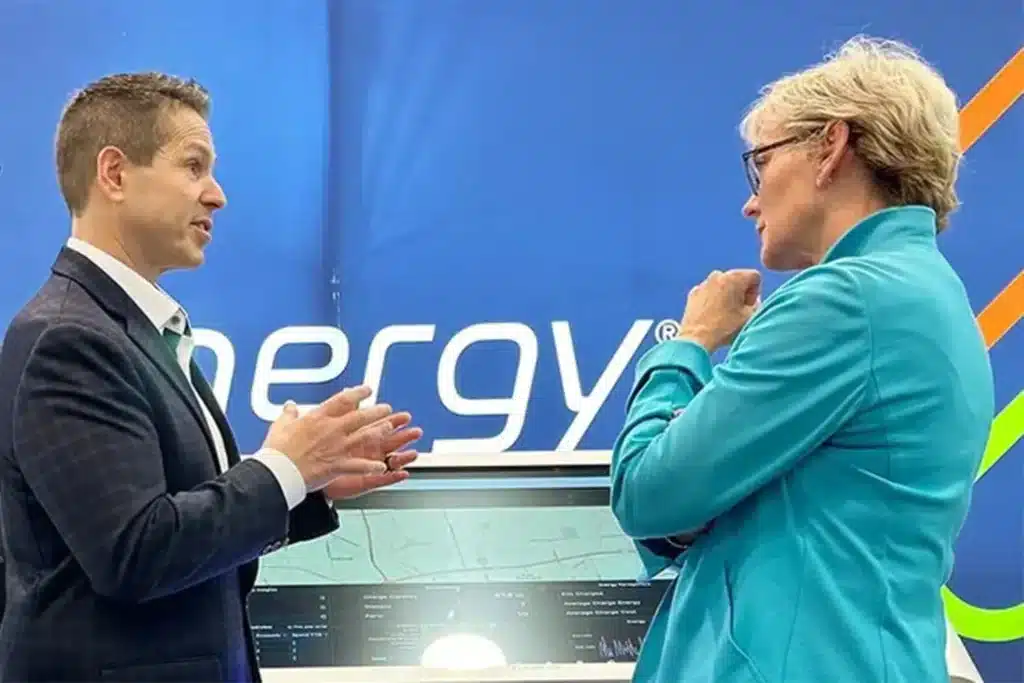
In addition to Future Energy’s dealership solutions, the company offers comprehensive EV charging solutions to a wide variety of stakeholders. Future Energy, in partnership with Automotive News’ Content Studio, released its 2024 EV Charging Infrastructure Study in August 2024. The comprehensive, thought-leading study highlighted a host of valuable insights for the automotive dealership industry when considering or managing electric vehicle (EV) charging installation.
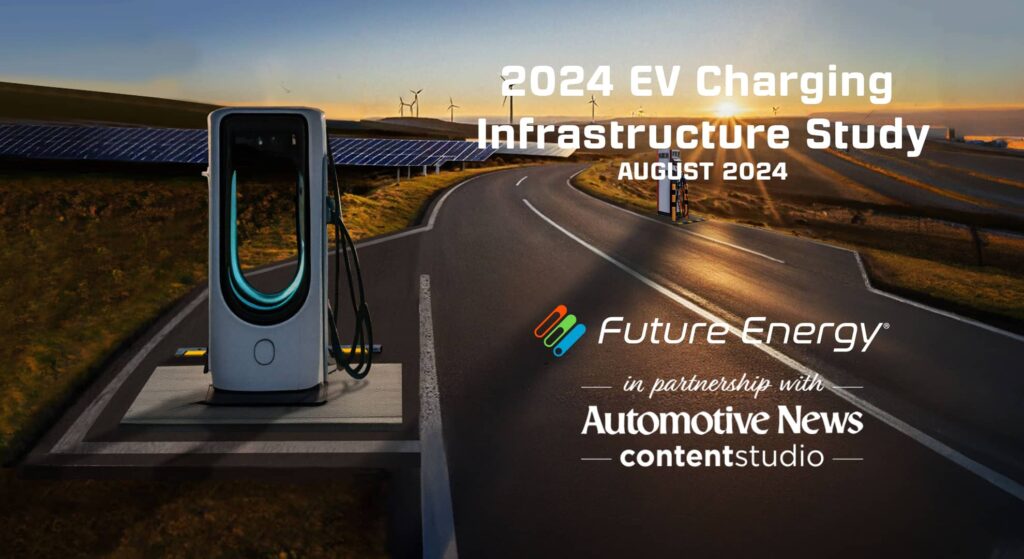

Electric Vehicle Marketing Consultant, Writer and Editor. Publisher EVinfo.net.
Services